Half a degree makes a world of difference
21 April 2016
The climate of our planet is changing, and the Earth is warming up. This is happening because of human activities that release lots of carbon dioxide and other greenhouse gases into the atmosphere. In small amounts, greenhouse gases help keep our world warm. But if there are large amounts of these gases, too much heat from the Sun gets trapped in our atmosphere. Because of the extra heat, glaciers are melting (some into the ocean), sea level is rising and causing more flooding in coastal areas, and hot-weather days are more common than they were a few years ago. Since we are the ones causing climate change, we are also the ones who can tackle it. In December 2015, world leaders got together in Paris to discuss how we could prevent climate change from becoming too dangerous for those living on this planet. Some leaders said we need to limit the average temperature increase by human activity to 1.5°C, while others said we could let it rise by 2°C. There’s only half a degree of difference between these two temperature limits, but scientists have now discovered that they would each have very different consequences for our planet. The additional 0.5°C would mean a 10-cm-higher global sea-level rise by 2100 and longer periods of hot-weather days, especially in the tropics (the regions near the Earth’s equator). In these regions, the oceans would also get a lot warmer, which would damage coral reefs. For warming of 1.5°C, some corals would have time to adapt to the temperature increase, but nearly all of them would be at risk in a world 2°C warmer. This new research shows just how important it is for us to slow down climate change, and prevent the Earth from getting too hot.Find out more
Discuss with your teacher or parents
What are we doing that could cause the Earth to get warmer? Why and how does climate change affect the oceans? What changes can we make to our lifestyles to slow down climate change?
To find out more about global climate change, check this educational website by NASA: http://climatekids.nasa.gov/.
Print version
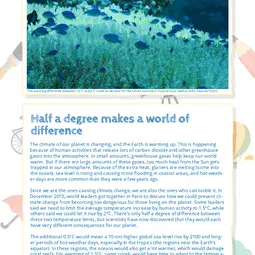
This is a kids' version of the EGU article: 'Half a degree makes a world of difference'. It was written by Bárbara Ferreira (EGU Media and Communications Manager) and Sarah Connors (EGU Science Policy Fellow), reviewed for scientific content by Kathryn Adamson (Lecturer in Physical Geography, Manchester Metropolitan University, UK) and Daniel Hill (School of Earth and Environment, University of Leeds, UK), and for educational content by Florence Bretaudeau (Teacher, Ensemble Scolaire Sainte Marie Bastide, Bordeaux, France).
Translations
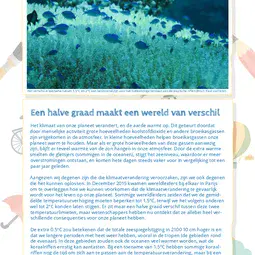
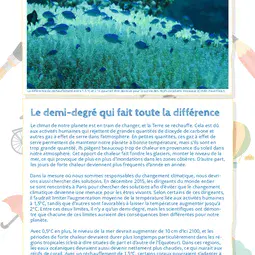
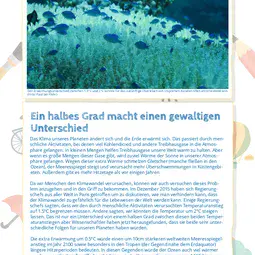
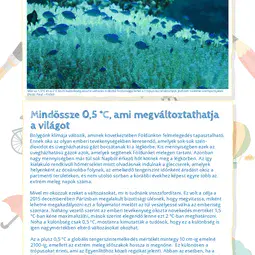
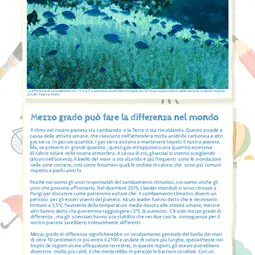
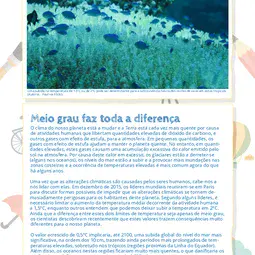
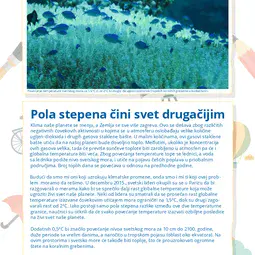
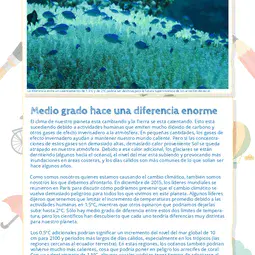
All English-language Planet Press releases are carefully edited, reviewed and proofed, by scientists, educators and EGU staff. Please note that once translated, Planet Press releases receive no further checks from EGU staff. For this reason, we cannot guarantee their accuracy, though we trust the quality of our voluntary translators and are grateful for their work.

